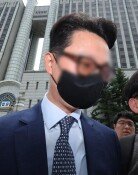[Opinion] The School Song of Ewha
[Opinion] The School Song of Ewha
Posted May. 31, 2007 03:57,
We bloom by the Han River in the warm spring breeze, and the holy one hath called it Ewha, oh Ewha/We sing out holy songs sweetly and softly. The Kingdom of Heaven is here in our midst (Hwanghwabang)/We yearn for the true spirit of honor and virtue (of Jijo). Shown by our great women (including Ji-eun). Tis (Queen A-ryeong) a guide to us all/We are gathered here to grow, learn and strive, and wrap the whole land in our virtue and grace.
These are the first and second stanzas of Ewha Womans Universitys school song composed in 1930 by Widang Chong In-bo, a prestigious Korean historian who also wrote the songs for Koreas Independence Day and Foundation Day. Not many songs have such an abundance of historical messages.
The first stanza is about Ewhas history. The holy one refers to Emperor Gojong, and "Hwanghwabang" is the old name for Jeongdong in Seoul, where the school was first established. The school was named, Ewha Hakdang by Emperor Gojong a year after it was founded in 1886; in that year its plate of Ewha, a present from the emperor, was officially hung. Just like in the song, in spring, pear blossoms flourished in Hwanghwabang (Ewha means pear blossom in Korean).
The second stanza is about the history of women in Korea. Jijo is the wife of General Kim Yu-shin, who led the unification of the Korean peninsula by Silla, whose other name is Jiso, the mother of Wonsul, a hwarang warrior of Shilla. She is the mother who never saw her son, Wonsul, again after he retreated in a war with the Tang Dynasty of China. Queen A-ryeong is the wife of Park Hyeokgeose, the founding monarch of Shilla. Ji-eun refers to a representative woman of filial piety in the history of Korea who took care of her widowed mother by volunteering to be sent away to a house servant during the Shilla period.
Ewhas President Lee Bae-yong, a historian, is eager to explain about the school song whenever possible after she was inaugurated in August last year. In particular, she emphasizes that the second stanza is a guidepost for Ewhanians in the history of women in Korea. Jiso symbolizes a woman of fairness and wisdom, Queen A-ryeong, a career woman, and Ji-eun, a woman with warm heart. President Lee says, The words in the song are hard to understand, but once you know them, Ewhanians should feel more self-esteem.
Today marks Ewhas 121st anniversary. Now, Ewha is to move forward to the world from its garden of pear blossoms, but its foundation motto is the same. Ewhas foundation motto is the spirit of the school doctrine as a framework of the Korean education system since the modern period. I hope that lawmakers who are set to address the Private School Law in the national assembly in June will look back on the educational motto and the historical spirit of the school doctrine of Ewha and other private schools.
Kim Chang-hyeok, Editorial Writer, chang@donga.com







